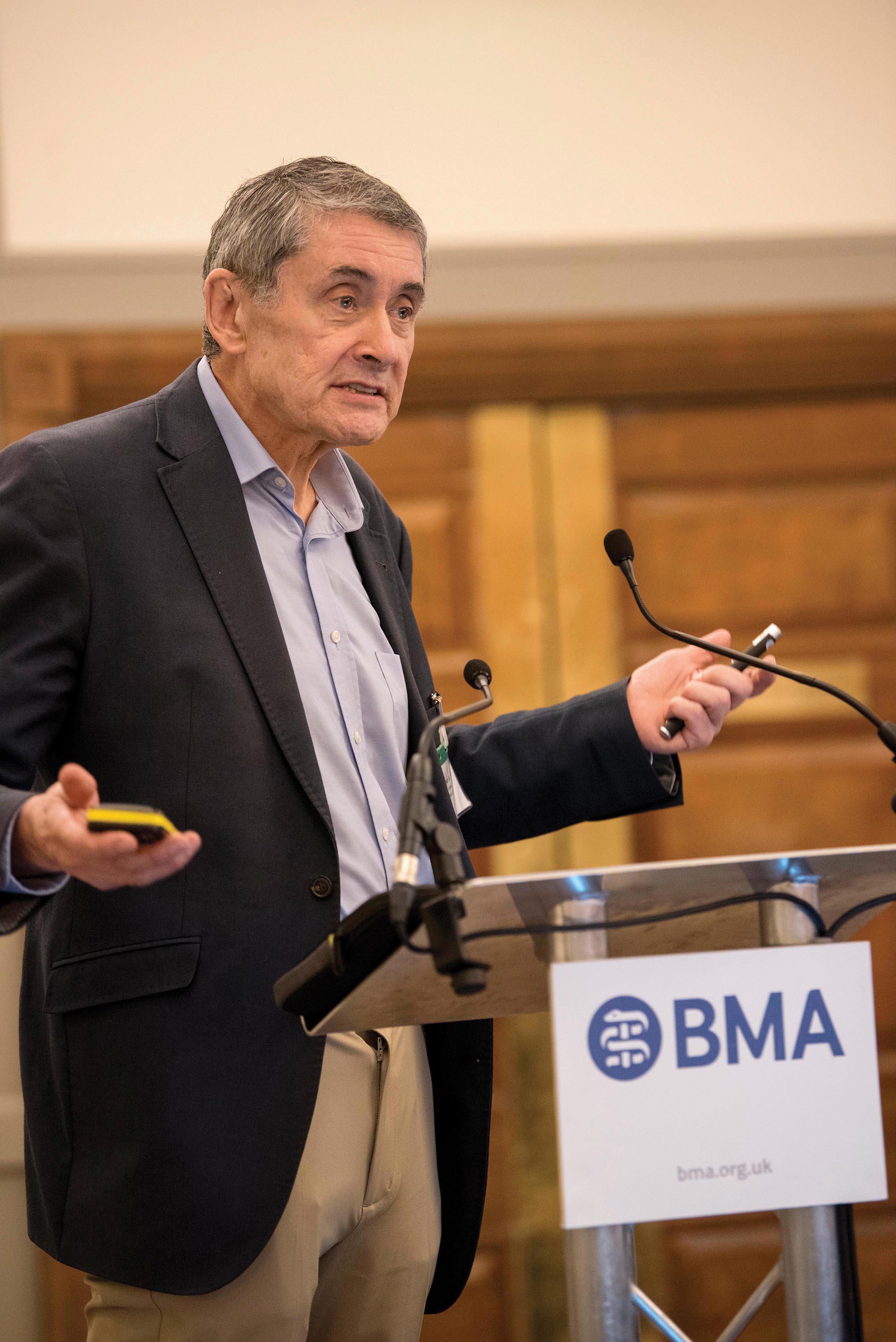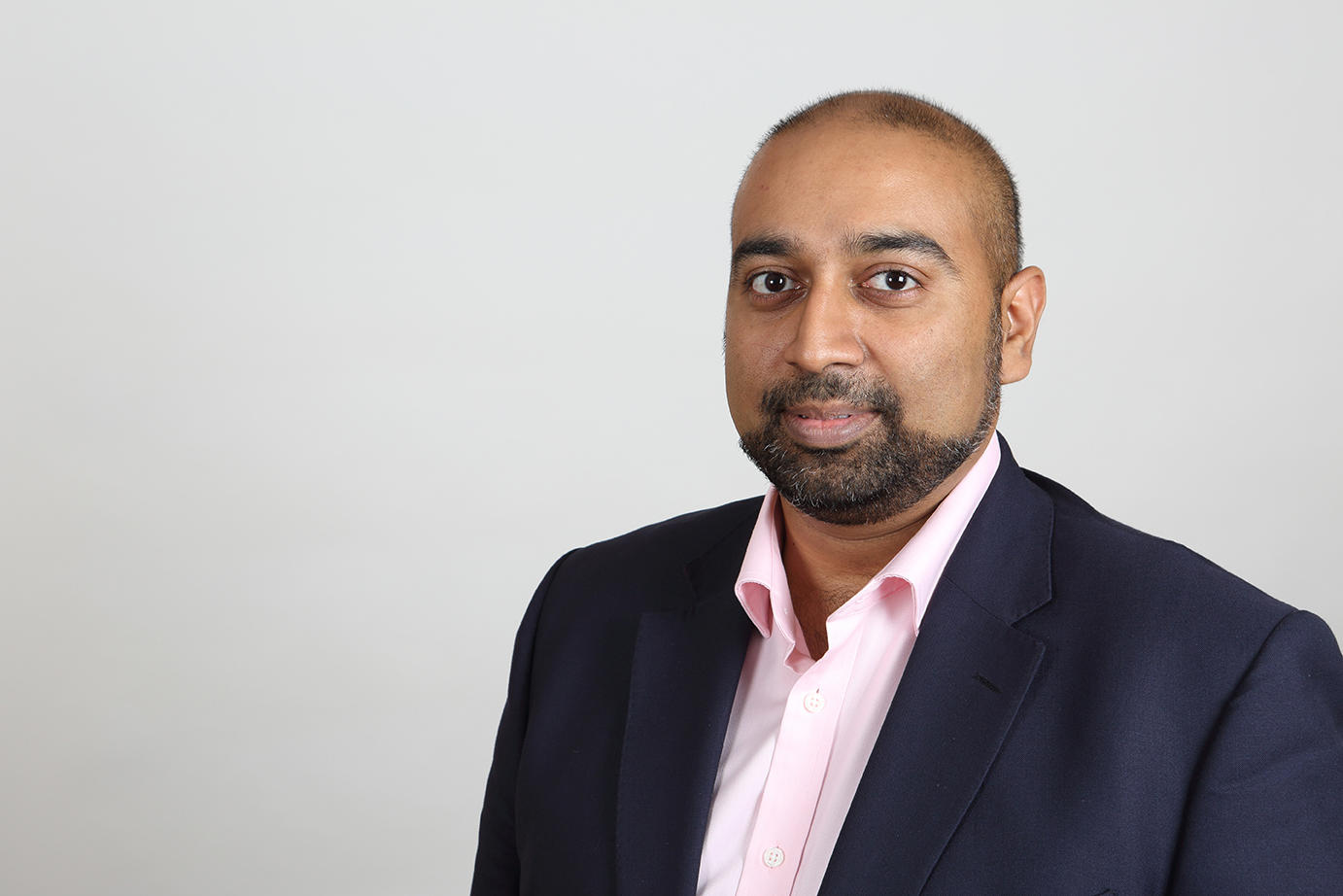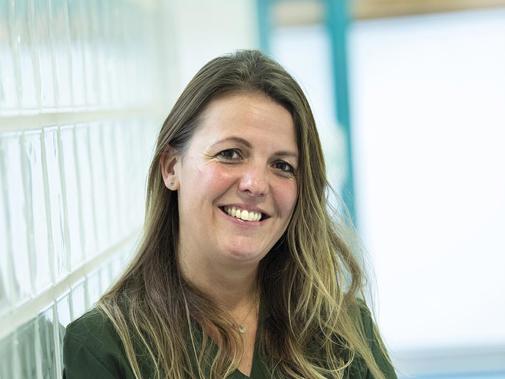‘None of us would disagree that health inequalities are important ... but it can often feel very overwhelming, quite nebulous and quite hard – it is easy to say it is someone else’s responsibility.’
Edinburgh GP Carey Lunan (pictured above) knows these issues as well as anyone. Dr Lunan has spent much of her career providing care for those who need it most – from the homeless population to working in a group of practices called the Deep End in Scotland which look after the most deprived populations.
In Dr Lunan’s Deep End practices patients have disproportionately higher levels of mental health and addiction issues, consultation rates are higher and appointment times must be shorter to meet demand and patient enablement scores are lower. All of these issues come, perhaps inevitably, with higher levels of clinician stress.
As Dr Lunan says, speaking at an event launching a new BMA initiative around health inequalities, ‘this is the inverse care law in action’.
This year marks 50 years since GP Julian Tudor-Hart put forward the Inverse Care Law, which describes a ‘perverse’ relationship in which the availability of good medical care is often least for those who need it the most.
Half a century on and with the pandemic having only further exacerbated and exposed the health inequalities in society, work in this area could hardly be more ‘timely’, as Dr Lunan says.
Care lottery
In many areas of the country doctors, and other people from a wide range of public services and charities, have tried to address the unfairness in their communities – but often work has been isolated rather than shared and driven across the UK.
Often, access to specialist services, or services tailored for communities that are left out of conventional healthcare arrangements, are a lottery based on little more than local personalities driving the work.
It’s easy to say it is someone else’s responsibilityDr Lunan
It is for all of these reasons – the overwhelming, nebulous complexity of health inequalities, the sporadic and localised responses and the entrenched need and lack of coordinated response – that BMA immediate past president and former chief medical officer for Scotland, Professor Sir Harry Burns, has led the association’s production of an inequalities toolkit which asked clinicians across the UK to tell the BMA about the initiatives they had seen, or taken part in within their local areas, which have helped to tackle inequalities.
This toolkit is intended to support clinicians and medical students working across the UK, not to lay the responsibility for reducing health inequalities at their feet. Neither is it intended as a replacement for campaigning at the BMA to ensure UK governments meet their responsibilities to reduce health inequalities.
But it will allow doctors to see the work colleagues have done – arranged into tiers representing the level of time and complexity involved – in a bid to share best practice and act.
Action not talk
Sir Harry is clear about why this work is important. He says: ‘We’ve been talking about health inequalities for some time – and it’s high time we did something about it.’
And for Sir Harry, while doctors must be at the heart of tackling these issues, being among those in communities who know their populations best, health inequalities must be considered as much wider than traditional healthcare.
 BURNS: High time something was done about health inequalities
BURNS: High time something was done about health inequalities
The professor of global public health at Strathclyde University says: ‘We focus as doctors on outcomes like heart disease, type two diabetes, COPD, lung cancer and look at the behaviours that cause them or are correlated with them.
'But that all comes down to them having an ability to choose to do things differently and the ability to feel control over their lives. If they have that ability, they have that sense of purpose and meaning, sense of control and self-esteem.’
We’ve been talking about health inequalities for some time – and it’s high time we did something about itSir Harry
Sir Harry cites the example of Falmouth’s Beacon and Old Hill estate which was a community dominated by drugs, violence and alcohol – with all the accompanying poor life outcomes.
In the late 90s two local health visitors decided to act and asked a small group of residents to drive change with them – largely by asking what mattered to the people who lived there.
At first it was simple things like gardening and making the streets look more presentable. At one house the front garden had become so overgrown a long-forgotten Ford Transit van was found when the gnarly overgrowth was peeled away.
Local teachers, police officers and housing workers all became involved and a host of community projects and building improvements led to massive change.
Crime was reduced by 50 per cent, post-natal depression decreased by 70 per cent, child protection registrations reduced by 65 per cent and teenage pregnancies went from 14 per cent to less than 1.
Inspiring examples
 KASARANENI: Tools for change
KASARANENI: Tools for change
Case studies already embedded in the toolkit include a health inclusion team who target untreated chronic and infectious disease in groups of individuals who have the worst health outcomes, an emergency department team which works with vulnerable adults and repeat attenders and a programme tackling tobacco addiction in hospitals.
The toolkit also includes a community chronic pain support group and an educational charity which produces free materials for healthcare professionals.
BMA GPs committee executive team member Krishna Kasaraneni says: ‘The luxury most of us don’t have at the moment is time and space and that’s only got worse through the COVID pandemic. But the toolkit hopefully sets out a framework and provides clinicians and medical students with an opportunity to start looking at areas where things can change.
'No individual can fix this on their own but like myself you might notice issues in your own practice and want to address those issues. The toolkit provides you with the different things that are happening and the way of looking at it that can support you with influencing change.’
As Sir Harry says: ‘We need to change the public service attitude. The existing system is all about finding solutions doing things to people rather than with them run by professionals. We need to build networks and allow the citizens to find support, and build strong citizens and healthy communities.’

